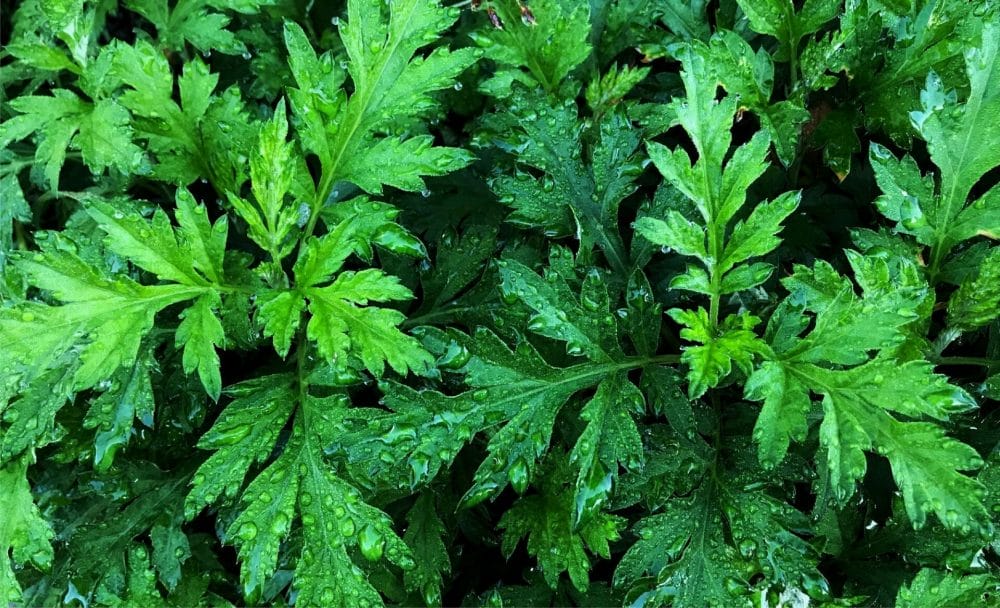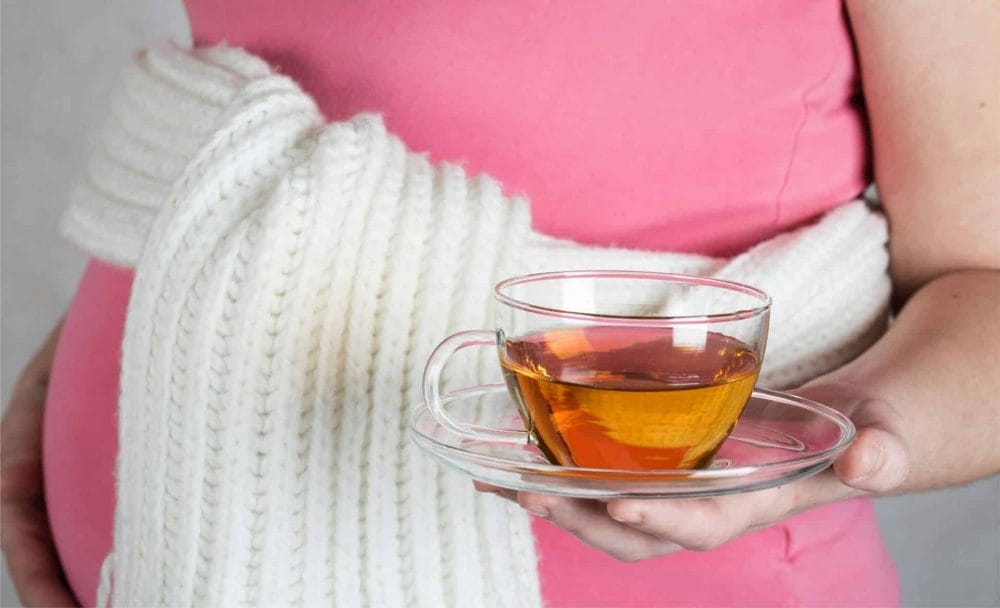
Want to know What is Mugwort? Well, Artemisia vulgaris L. commonly known as Mugwort is a celebrated herbal species with immense significance in the realm of medicinal plants. This fragrant flowering herb was given the name of “mother of herbs” during the Middle Ages. [1] Its pharmacological and phytochemical properties make this herb a much sought-after herb for curing various diseases. The main constituents of this herb include sesquiterpenoids, lactones, flavonoids, and essential oils. [1] In India, this herb grows amply in the hilly areas of the Western Ghats, Mount Abu (Rajasthan), and hilly belts stretching from Konkan to Kerala. Apart from Mugwort, the other common names of this herb are Indian Wormwood, Dungwort, and Fleabane. In Ayurveda, the herb is known by the names of this herb are Gandhotkata, Pushpachaa-mara, Damanaka. [2] The herb is tridosha shamaka and comes with attributes like pungent odor and a bitter, sharp taste with a spicy underlying taste. However, this holds true only for the fresh plants of Mugwort. [3]
In this article we’ll learn about the various Mugwort benefits, Mugwort uses, and several other details about the Mugwort herb. Read on:
Benefits of Mugwort
Eases menopause
One of the prominent Mugwort benefits is that it can ease the various discomforts a woman faces during menopause. Using the Mugwort therapy instead of the Hormone Replacement Therapy is a safe choice for menopausal women. [5]
Tackles menstrual issues
The herb is best for managing menstrual issues like Amenorrhea, Dysmenorrhea and Menorrhagia. [5]
Relieves Pain
Sesquiterpenes and Monoterpenoids in Mugwort have anti-inflammatory impact because of the inhibition of NF-κB activation. This makes the herb an ideal pain reliever and analgesic. [5]
Keeps pregnancy safe

Mugwort tea pregnancy may be used to keep the growing fetus safe in the mother’s womb. This can serve as an effective anti-abortion herbal remedy. [5]
Moxibustion
Using Mugwort leaves arranged in a specific shape by placing it over an acupressure point, and burning it down is known as Moxibustion. This process was used before the arrival of modern medicines to allow the reversing of unborn babies who were in breech position.In traditional Chinese medicine, this procedure was frequently used in the past. [5]
Treats ADHD
Children having Attention Deficit Hyperactivity Disorder can be treated with the herbal Mugwort therapy. This therapeutic use of the herb can prove more beneficial when compared to amphetamine or methylphenidate. [5]
Treats Nervous disorders
The herb has shown great results against nervous system disorders, such as anxiety, epilepsy, seizures, and sleepwalking. [1]
Antifungal effect
Essential oil and leaf extracts of Mugwort may be used to treat fungal skin infections. [1]
Cancer preventative
The phenolic compounds and flavonoids in Mugwort extracts show cytotoxic properties, in inhibiting the proliferation of tumor cells in certain types of cancers. [1]
Lowers cholesterol
Research has shown that the herb can have a hypolipidemic action, lowering the levels of LDL and triglycerides. This makes Mugwort a great herb for cardiovascular health. [1]
What is Mugwort used for
Medicinal Herb
Ethnomedicinally, Mugwort is used in traditional herbal medicine for a wide range of diseases as discussed in the previous paragraphs of this article. [3]
Culinary Herb
One of the Mugwort Uses is in Western cuisine as a culinary herb. Also, the Mugwort herb is used to flavor rice recipes as well as herbal teas in Asia. [3]
In cosmetics
The herb is also used in the cosmetic industry, especially in the skincare products. [4]
Also, the herb is used in the production of insect repellants, essential oils, alcoholic beverages, and dietary supplements. [4]
Mugwort side-effects
More research is needed in this particular area. Scientists need to undertake more research to come up with the potential Mugwort herb side effects. However, it has been established by few researchers that the herb may cause allergic reactions in some people. [1] Allergenic glycoproteins in Mugwort trigger these reactions. Anaphylactic shock, breathing issues, nausea, vomiting, and even miscarriage have been reported if the herb is consumed in large amounts. [1] Also, Diabetics should be careful about taking this herb as it may elevate the blood sugar levels. [1]
FAQs
• Which parts of the Mugwort herb are used for medicinal purposes?
The leaves, flower heads, buds, stems, and roots are used for making Ayurvedic medicines from Mugwort. [3]
• How to make Mugwort tea?
Mugwort tea benefits are many. To make the tea you need to use 1.2 grams of dried herb. You can use dried Mugwort leaves, flowers, and stems for making the tea. You need to pour boiling water (150 ml) over the dried herb. Let the contents steep for about 5 minutes in a covered saucepan. This b herbal tea may be taken twice or thrice a day before mealtime. [5]
• Where to get Mugwort near me?
If you have a sound knowledge of herbs, and can identify mugwort confidently, you can look for the plant along riverbanks and roadsides in wastelands and peripheries of woods. [3] But, if you don’t want to take all that trouble, you can visit a nearby herbal product or check online.
Conclusion
Mugwort is a relaxing and warming remedy for several human ailments. The hardy and tall plant grows extravagantly and benefits your health generously. This floral herb has been named after Artemis, the Greek goddess, and it plays a dominant role in safeguarding the gynecological health of women. There are several other Mugwort benefits for health, as discussed above. Let Mugwort make your life healthy and worth with its healing touch!
Disclaimer
This article is written from a health and wellness perspective and is not medical advice. Kindly seek the help of a certified medical practitioner before initiating any treatment.
References
- Significance of Artemisia Vulgaris L. (Common Mugwort) in the History of Medicine and Its Possible Contemporary Applications Substantiated by Phytochemical and Pharmacological Studies
- Indian Medicinal Plants
- Artemisia vulgaris Linn: an updated review on its multiple biological activities
- Bioactive Compounds and Health Benefits of Artemisia Species
- Mugwort (Artemisia vulgaris, Artemisia douglasiana, Artemisia argyi) in the Treatment of Menopause, Premenstrual Syndrome, Dysmenorrhea and Attention Deficit Hyperactivity Disorder












